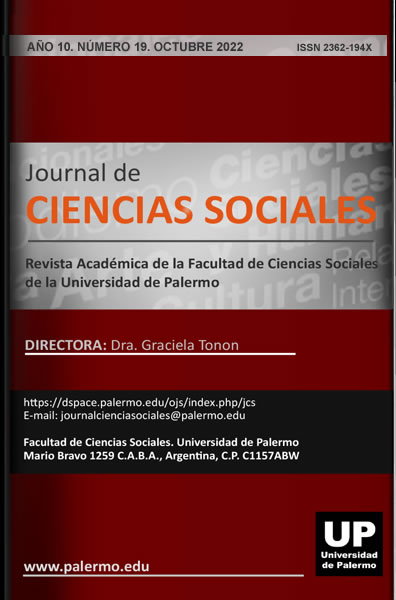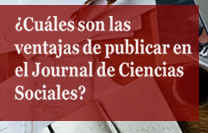Los grupos de autoayuda como recurso social en tiempos de crisis
Resumen
La crisis del COVID-19 ha puesto de manifiesto la importancia de los recursos de apoyo social y la necesidad de crear y/o ampliar las redes sociales que proporcionen el apoyo necesario. Esto ha sido evidente ya que muchas personas perdieron sus fuentes de apoyo en las situaciones más necesitadas, incluido el apoyo público proporcionado por instituciones formales. Si bien aún no se ha evaluado la magnitud general del impacto social, se han planteado muchas preguntas, como resultado de esta crisis, sobre la mejora de los sistemas de apoyo existentes y el uso de otros posibles recursos sociales. Este ensayo tiene como objetivo arrojar luz sobre el papel de los grupos de autoayuda (también llamados grupos de autodesarrollo o crecimiento personal) como un recurso importante de apoyo social y resiliencia. Evidentemente, estos grupos han proporcionado un espacio para que las personas se conecten entre sí, compartan información útil, se brinden apoyo emocional e instrumental mutuo y desarrollen capacidad y resiliencia entre sus miembros. Esto ha sido más evidente durante la crisis de COVID-19, ya que las plataformas de autoayuda y ayuda mutua en línea desempeñaron un papel de apoyo clave cuando se restringió el movimiento. Argumentamos que los grupos de autoayuda representan un recurso social importante, no solo como un amortiguador contra las crisis, sino también como una herramienta para el cambio social y la mejora de la calidad de vida.
Descargas
Citas
Anderson, C. L., Gugerty, M. K., Biscaye, P., True, Z., Clark, C., & Harris, K. P. (2014). Self-Help Groups in Development: A Review of Evidence from South Asia and Sub-Saharan Africa.
Borkman, T. (2004). Self-help groups. In: Philanthropy in America: A Comprehensive Historical Encyclopedia, ed. D. E Burlingame, Santa Barbara, CA: ABC-Clio, 428-432.
Borkman, T. (2008). Self-Help Groups as Participatory Action. In R. A Cnaan & C. Milofsky (Eds.), Handbook of Community Movements and Local Organizations. Handbooks of Sociology and Social Research. Springer.
Borkman, T., Munn-Giddings, C., & Boyce, M. (2020). Self-Help/Mutual Aid Groups and Peer Support. Voluntaristics Review, 5(2-3), 1-219.
Bottrell, D. (2007). Resistance, resilience and social identities: Reframing ‘problem youth’ and the problem of schooling. Journal of Youth Studies, 10, 597-616
Bumbalo, J. A. & Young, D. E. (1973). The self-help phenomenon. American Journal of Nursing, 73, 1588–1591.
Cabiati, E. (2021). Social workers helping each other during the COVID-19 pandemic: Online mutual support groups. International Social Work, 64(5), 676-688.
Cacioppo, J. T., Fowler, J. H., & Christakis, N. A. (2009). Alone in the crowd: the structure and spread of loneliness in a large social network. Journal of personality and social psychology, 97(6), 977–991.
Cohen, S. (2004). Social Relationships and Health. American Psychologist, 59, 676-684.
Domenech, Y. (1998). Los grupos de autoayuda como estrategia de intervención en el apoyo social en Alternativas, 6,179-196.
Drury, J., Brown, R., Gonzalez, R., & Miranda, D., (2016). Emergent social identity and observing social support predict social support provided by survivors in a disaster: solidarity in the 2010 Chile earthquake. European Journal of Soial Psychology, 46 (2), 209–223.https://doi.org/10.1002/ejsp.2146
Grotberg, E. (1995). A Guide to Promoting Resilience in Children: Strengthening the Human Spirit. Early Childhood Development: Practice and Reflections, v. 8. Bernard Van Leer Foundation.
Hartling, L. M. (2008). Strengthening resilience in a risky world: it's all about relationships. Women & Therapy, 31,51-70.
Hedlund, M., Landstad, B.J., & Tritter, J.Q. (2019). The disciplining of self-help: Doing self-help the Norwegian way. Social Science & Medicine, 225, 34-41.
Holm, M., Tyssen, R., Stordal, K., & Haver, B. (2010). Self-development groups reduce medical school stress: A controlled intervention study. BMC Medical Education, 10(1), 23.
Holt-Lunstad J. (2018). Fostering Social Connection in the Workplace. American Journal of Health Promotion, Jun, 32(5), 1307-1312.
International Federation of Social Workers (IFSW). (2014). Definition of social work. https://www.ifsw.org/what-is-social-work/global-definition-of-social-work/
Katz, A. H. & Bender, E. (1976). The Strength in US: Self Help Groups in the Modern World. Franklin Watts.
Kent de Grey R. G., Uchino, B. N., Baucom, B. R., Smith, T. W., Holton A. E., & Diener, E. F. (2019). Enemies and friends in high-tech places: the development and validation of the Online Social Experiences Measure. Digit Health, 5. https://doi.org/10.1177/2055207619878351
Lee, R. M. & Robbins, S. B. (1998). The relationship between social connectedness and anxiety, self-esteem, and social identity. Journal of Counseling Psychology, 45(3), 338-345
Masten, A. S. (2015). Ordinary magic: Resilience in development. Guilford Publications.
Matsuo, M. (2019). Empowerment through self-improvement skills: The role of learning goals and personal growth initiative. Journal of Vocational Behavior, 115.https://doi.org/10.1016/j.jvb.2019.05.008
Palma-García, M. & Hombrados-Mendieta, I. (2014). The development of resilience in social work students and professionals. Journal of Social Work, 14(4), 380–397.
Thoits, P. A. (1995). Stress, coping, and social support processes: Where are we? What next? Journal of Health and Social Behavior, 35, 53-79.
Thoits, P. A. (2011). Mechanisms Linking Social Ties and Support to Physical and Mental Health. Journal of Health and Social Behavior, 52(2), 145-161.
Ungar, M. (2011). The social ecology of resilience: Addressing contextual and cultural ambiguity of a nascent construct. American Journal of Orthopsychiatry, 81, 1-17
Van Breda, A. D. (2018). A Critical Review of Resilience Theory and its Relevance for Social Work. Social Work / Maatskaplikewerk, 54(1). https://doi.org/10.15270/54-1-611
Williams P, Barclay L, & Schmied V. (2004). Defining social support in context: a necessary step in improving research, intervention, and practice. Qualitative health research, 14(7), 942–960. https://doi.org/10.1177/1049732304266997
Young, T. L., Reysen, R., Eskridge, T., & Ohrt, J. H. (2013). Personal growth groups: Measuring outcome and evaluating impact. The Journal for Specialists in Group Work, 38(1), 52–67.
Los autores conservan los derechos sobre su obra garantizando a esta revista el derecho de primera publicación, comprometiéndose a citar el Journal de Ciencias Sociales como referencia de la publicación original.
Los trabajos publicados en el Journal se publican bajo los términos que se indican en la Licencia de Creative Commons con la Atribución 4.0 Internacional (CC BY 4.0).




























